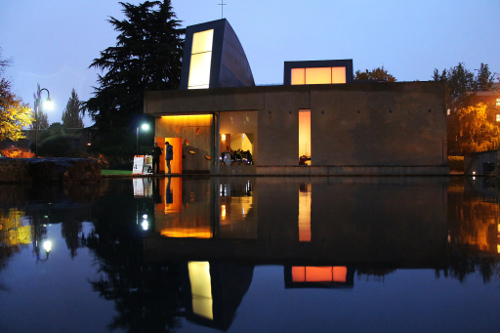SUBSCRIBE TO THE FREE NEWSLETTER
Cascadia Magazine’s debut book review:
Chief Seattle and the Town That Took His Name
Chief Seattle, the man the city of Seattle is named for, has long been the subject of popular mythology, used to promote the idea of the “noble savage,” environmentalism, or a shallow Native American-inspired spirituality. The actual man was much more complicated, according to David Buerge’s Chief Seattle and the Town That Took His Name.
In our first book review published at Cascadia Magazine, we’re proud to have former Seattle Times book critic Michael Upchurch on the job. Michael gives a sharp appraisal of the book, noting how Buerge goes into detail to describe both the pioneer town of Seattle and the Duwamish tribal culture that preceded it. Michael notes it’s a rich portrait of a “living, conflicted figure who did the best he could with the circumstances he was dealt.”
Read the full review here.
Fish farming company misled WA officials, fined $300K
Lynda Mapes at the Seattle Times reports on how Cooke Aquaculture misled Washington state officials after the collapse of a salmon pen last summer that released more than 200,000 Atlantic salmon into the Salish Sea. A report from the Department of Ecology found numerous cases of negligence and deception, and has fined the company $300,000. Meanwhile, local leaders found their warnings to WA state leaders about risks of fish farms regularly ignored.
Medically-assisted death in BC twice the national rate
CBC reports on British Columbia’s program of medically-assisted death–which helps provide relief to terminally-ill patients–and occurs at nearly twice the rate of the rest of Canada. The program leaves most decisions up to patient and doctors, the report notes. A follow-up feature tells the story of a Comox, BC couple who had to make difficult decisions when Storm Miller came down with inoperable stomach cancer.
Medicaid is working in Oregon
After the successful passage of Measure 101, which continued funding for Oregon’s Medicaid program, OPB reports on a new study that shows a $2 billion federal grant has improved coverage and reduced costs statewide.
How a poet and biology teacher is confronting climate change
KUOW has a great interview with Seattle-based poet and teacher Melinda Mueller, whose book The After imagines the earth after humans have gone extinct. Mueller is also the author of Mary’s Dust, a collection of poems inspired by Marys throughout history.
An Indigenous woman’s journey from the streets to film
The Tyee follows up with Angel Gates, who, when she was profiled by the paper in 2013, was a prostitute working the streets of Vancouver. Now she’s an actor in and an activist for the rights of aboriginal sex workers. Gates is the star of Luk Luk’I, Wayne Wapeemukwa’s film about Vancouver’s troubled Eastside during the 2010 Olympics, which was a surprise hit at the Toronto International Film Festival last year.
Steven Holl and Ed Weinstein: Two architects with roots in Cascadia
ARCADE and the BUILD blog have a two-part interview with acclaimed Cascadia architects Steven Holl and Ed Weinstein. Both were born in gritty Washington towns: Holl in Bremerton, and Weinstein in Aberdeen. In the far-ranging conversation, the architects reflect on influences and careers. Says Holl: ““If you want to be an architect, the first thing you need to know is how to cook. It teaches you about color, flavor, and texture.”
Read part one and part two of the interviews online.
That’s all from one of those days when you might actually believe the bluest skies you’ve ever seen ARE in Seattle. –Andrew Engelson
Photo credit: Steven Holl’s St. Ignatius Chapel in Seattle, photo by Jules Antonio, CC BY-SA 2.0.

